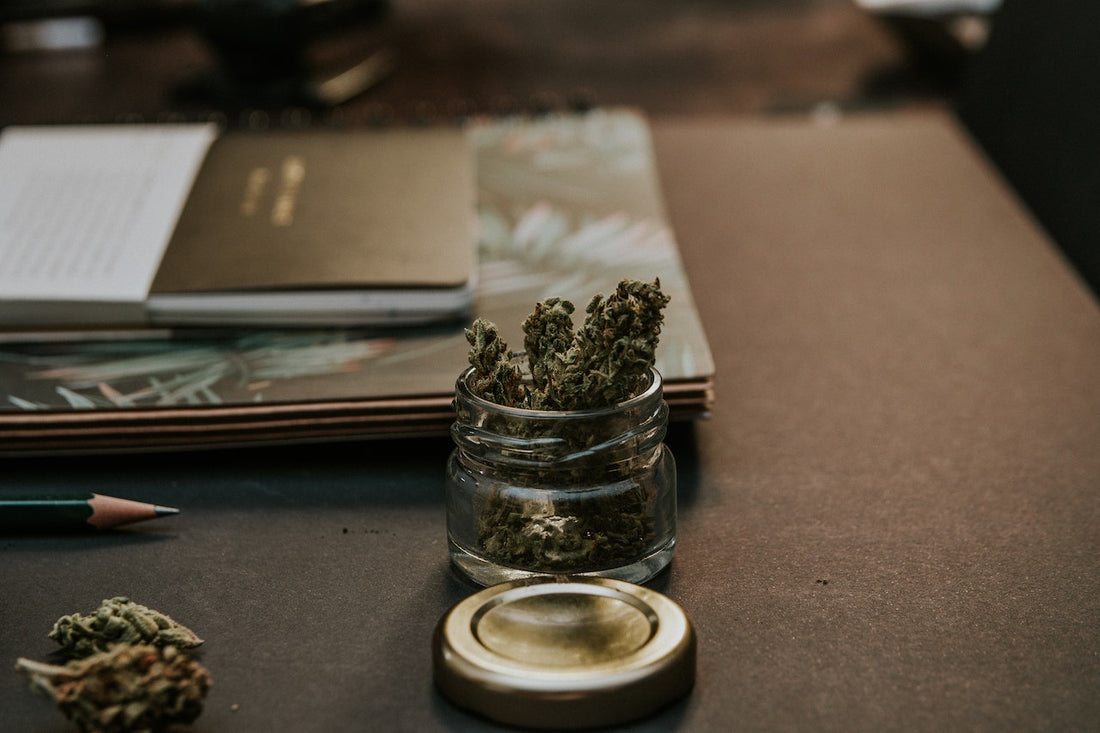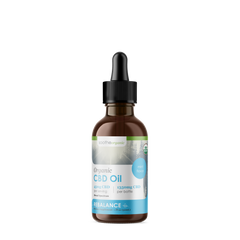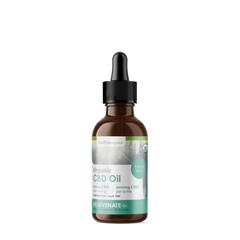The cannabis plant has been used for medicinal purposes for centuries, and recent advancements have shed light on the therapeutic potential of its various compounds, including cannabinoids.
Cannabichromene, or CBC, is a non-intoxicating cannabinoid that is receiving increasing attention for its potential health benefits. Produced enzymatically in the plant's trichomes, it is a promising candidate for treating many issues.
In this article, we delve deeper into the world of CBC and explore its potential as a therapeutic cannabinoid. We discuss the benefits of CBC, including its ability to relieve physical discomfort, encourage a healthy inflammatory response, and help with stress management.
We also provide information on supplementing with CBC and discuss serving size recommendations.
By the end of this article, you will better understand the potential benefits of CBC and how it may be used to promote overall health and wellness.
Key Takeaways
- CBC is a non-intoxicating cannabinoid with potential therapeutic benefits.
- CBC can encourage a healthy inflammatory response, help reduce physical discomfort and support relaxation.
- Supplementation with CBC may require careful consideration of serving size and product type.
- Speaking with a doctor before supplementing with CBC is recommended for individuals who are currently taking medication or have underlying health conditions.
Overview and Benefits
CBC is a non-intoxicating cannabinoid that is produced enzymatically in trichomes and has shown potential therapeutic benefits.
Some of its benefits include encouraging a healthy inflammatory response, helping reduce physical discomfort, and supporting relaxation. CBC is considered to be the second most common cannabinoid found in the cannabis plant, and it does not produce a "high" like THC.

CBC oil can supplement endocannabinoids responsible for these functions, and its potential for treating various ailments makes it an intriguing therapeutic option. However, it is essential to consult with a doctor before supplementing with CBC or any other cannabinoids.
Cannabinoid Receptors and Interactions
The endocannabinoid system regulates bodily functions and contains two receptors, CB1 and CB2, that interact with various cannabinoids. CB1 receptors are primarily found in the central nervous system and control pain, appetite, and mood.
On the other hand, CB2 receptors are mainly located in the immune system and are involved in inflammation and immune response.
The interactions between CBC and these receptors have shown promise in its potential therapeutic benefits.
The interactions between CBC and various receptors in the body suggest that this cannabinoid may have a wide range of applications, especially in supporting overall health and wellness.
Supplementation and Dosage
Supplementation with CBC may require careful consideration of the serving size and product type to achieve optimal effects. The portion size of CBC oil varies by product, and it is recommended to start with a small amount and gradually increase it to experience optimal results.
It is also important to note that full-spectrum CBC oil is the most beneficial for the majority of people because it contains all the cannabinoids found in the cannabis plant. However, individuals who are sensitive to THC or have to undergo drug testing should opt for broad-spectrum CBC oil instead, which removes THC.
Moreover, speaking with a doctor before supplementing with CBC is recommended, especially for individuals who are currently taking medication or have underlying health conditions. CBC oil can potentially interact with other medications and cause adverse effects.

Additionally, purchasing CBC oil from a reputable source is essential to ensure quality and purity. In summary, CBC oil supplementation can benefit various ailments and symptoms. Still, it is necessary to be cautious and informed when choosing a product and determining the right serving size.
Frequently Asked Questions
What other plants besides cannabis produce CBC?
CBC, or cannabichromene, is a lesser-known cannabinoid that is the second most common in the cannabis plant.
However, CBC is not exclusive to cannabis and has been found in trace amounts in other plant species, including hemp, hops, and black pepper.
While the concentration of CBC in these plants is significantly lower than in cannabis, it suggests that CBC may play a role in the plant’s medicinal properties.
Further research is needed to fully understand the potential therapeutic benefits of CBC in non-cannabis plants.
Is CBC legal in all states and countries?
The legality of CBC varies by state and country, as it is still classified as a Schedule I drug under the United States federal law. However, some states have legalized the use of cannabis for medicinal purposes, which may allow for the use of CBC.
It is essential to check the laws and regulations in your area before using CBC or any other cannabis-related products.
Can CBC be used in conjunction with prescription medications?
The use of CBC in conjunction with prescription medications is a topic that requires further investigation and discussion with a healthcare professional.
While CBC is generally considered non-intoxicating, it may interact with certain medications, potentially causing adverse effects or altering their efficacy.
It is important to note that the use of cannabinoids, including CBC, is still a relatively new field of study, and research is ongoing to understand their potential benefits and risks fully.
Therefore, individuals should exercise caution and seek guidance from a healthcare provider before using CBC or any other cannabinoid in combination with prescription medications.
What is the difference between CBC and CBG?
CBC and CBG are both non-psychoactive cannabinoids found in the cannabis plant, but they differ in their chemical structure and potential therapeutic benefits.
CBC, or cannabichromene, is the second most common cannabinoid in cannabis. CBG, or cannabigerol, is a precursor to other cannabinoids and has potential benefits in encouraging a healthy inflammatory response, helping reduce physical discomfort, and supporting relaxation.
While both CBC and CBG show promise in the field of cannabis research, more studies are needed to understand their effects on the body and potential applications fully.
Are there any known side effects of taking CBC oil?
Currently, limited information is available on the potential side effects of taking CBC oil, as research on this compound is still in its early stages.
However, it is essential to note that CBC, like other cannabinoids, may interact with medications and produce unwanted effects.
Additionally, some individuals may experience mild side effects such as dry mouth, dizziness, and fatigue.
Speaking with a healthcare professional before incorporating CBC oil into one’s daily routine is crucial, especially if taking medications or experiencing any underlying health conditions.
More extensive research is needed to determine the safety and efficacy of CBC oil for various ailments and conditions.
CBD energy drinks, CBD sleep apnea, MLB CBD, Best sleep gummies, THCV gummies, 750mg gummies, CBD sports cream, CBD cream 1000mg, Wyoming weed laws, CBG tincture, gummies for sleep, CBD softgels 25mg, delta 9 gummies, sleep gummies, CBD Wyoming, CBD store Casper, Focus gummies, THCv gummies effect, healing salve, best delta 9 gummies, sleep gummies for adults, vegan gummies, CBD softgels, best THCv gummies, full spectrum vs. broad-spectrum CBD, muscle rub, organic sleep gummies






